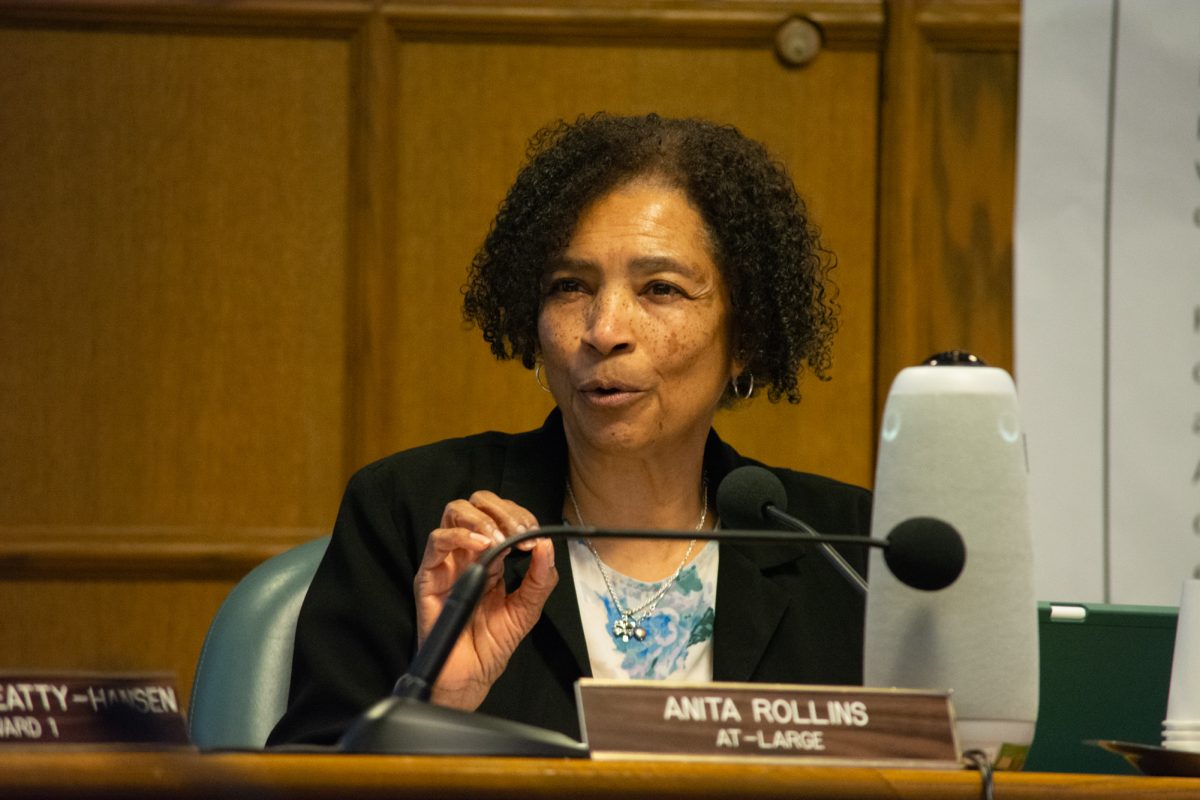Carrie Chapman Catt’s name on Catt Hall did not gain enough support from a university committee to recommend its removal after an initial vote of 6-9 failed to meet the two-thirds threshold needed.
The Iowa State University Review Committee for Consideration of Removing Names from University Property began its public comment period Thursday and will continue to collect it through a form until Oct. 29. After the input is reviewed, the committee will take another vote on a final recommendation and present it to Iowa State University President Wendy Wintersteen.
Calls to keep Catt’s name from the hall date back to before it was officially named in 1995. According to the committee’s report, a piece was published in the Iowa State’s Black Student Alliance newsletter one week before the naming on Sept. 29, 1995, titled “The Catt’s out of the Bag: Was she racist?”
Then-Iowa State sophomore Meron Wondwosen cited Catt’s declaration that white supremacy would be strengthened by women’s suffrage and discouragement of a Black women’s suffrage group from seeking membership in the national suffrage organization.
This later was the basis for founding The September 29th Movement, in which one of its leaders was hospitalized after a six-day hunger strike in 1997 and all three leaders held a sit-in at the university’s president’s office and were arrested in 1998.
The report says the “naming issue” was largely absent for “nearly two decades” until 2019 when “racist incidents occurred on Iowa’s university campuses” alongside the 2020 murder of George Floyd.
In 2020, a petition circulated on campus to rename Catt Hall, and in July 2020, Wintersteen created a committee to establish a policy and process for removing names from buildings.
The summary of the report from the committee that resulted said the women’s suffrage movement in America “sought the right to vote for all women regardless of color” and that had Catt, in conjunction with the movement, not opposed efforts to revise the 19th amendment to apply only to white women, women of color would have been disenfranchised.

“These voluminous records describe the full arc of Catt’s life and work, and the recurring themes include equality, democracy, and peace evident in most of her work,” the report stated. “Catt condemned anti-semitism, defended Black soldiers in World War I against unfounded charges, condemned the Ku Klux Klan, and raised her voice against Nazi treatment of Jews. She founded the League of Women Voters, open to all women.”
Committee members who dissented said in the report that the name goes against the university’s “ideals of access and welcoming and inclusive environment” and that Catt’s views are “inconsistent with the university’s Principles of Community.”
“Catt Hall is a reminder, especially to those from marginalized communities, that the political compromises that allow the nation to take great steps forward can also be inequitable and leave some people behind,” the report stated. “The Catt Hall name, rightly or wrongly, could be associated with racism and nativism and impede recruitment and retention.”













